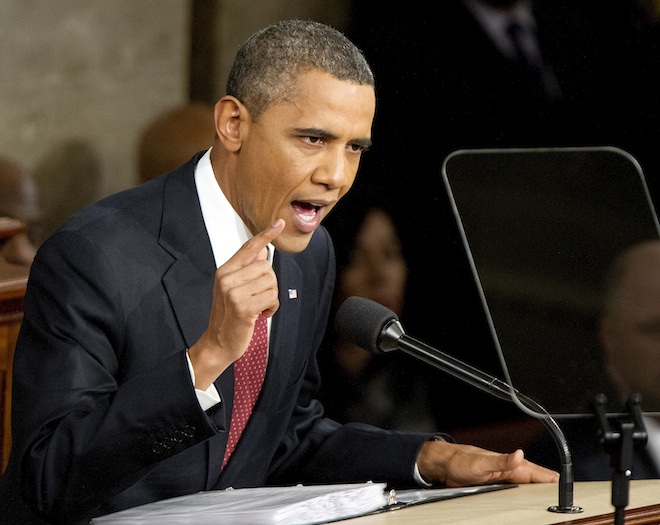Ahead of a Senate vote next week to put members on record supporting or opposing the so-called “Buffett Rule,” the White House is rolling out a public campaign to tout the notion that people who make more than $1 million a year should pay a bigger share of their income in taxes than middle-class Americans.
The subtext is heavily political. On Monday, the Obama campaign hosted a conference call to pressure likely GOP nominee Mitt Romney to release years of tax returns after Romney revealed that his own effective tax rate last year was below 15 percent. And on Tuesday, Obama himself will travel to Florida to publicly push the Buffett Rule.
But the White House’s job is to make a strong policy case. And so on Monday evening, two of the administration’s top economists — Deputy NEC Director Jason Furman and Council of Economic Adviser Chairman Alan Krueger — made the case to reporters that a Buffett Rule is more than a political stunt or a pitch for tax justice but also strong economic policy.
One of the most common criticisms of the version of the Buffett Rule that will hit the Senate floor is that it raises only $47 billion over 10 years — a pittance compared with the size of the U.S. budget. The administration has two responses.
“We think $47 billion is actually a meaningful amount of money for us and most Americans,” Furman said.
More substantively, they note that the Buffett Rule would raises significantly more money when applied to current policy, in which the Bush tax cuts haven’t yet expired.
“If you layer the Buffett Rule on the tax system we have now, it would raise substantially more,” Furman said.
In other words, if the Buffett Rule takes effect this year, it will provide a bulwark against the possibility that Republicans manage to extend all of the Bush tax cuts beyond their scheduled expiration date at the end of the year.
The Buffett Rule itself, though, has come under substantive criticism — for potentially discouraging investment by eating into the tax preference for capital gains; and for not lacking a mechanism that would prevent less affluent people from ultimately becoming ensnared by the rule.
To that the administration cautions that it views the Buffett Rule as a policy that can be enacted before much more substantial tax reforms — but that those reforms remain a huge priority. And in an accompanying paper, embedded below, they argue that the rule would limit tax avoidance and thereby enhance economic efficiency.










